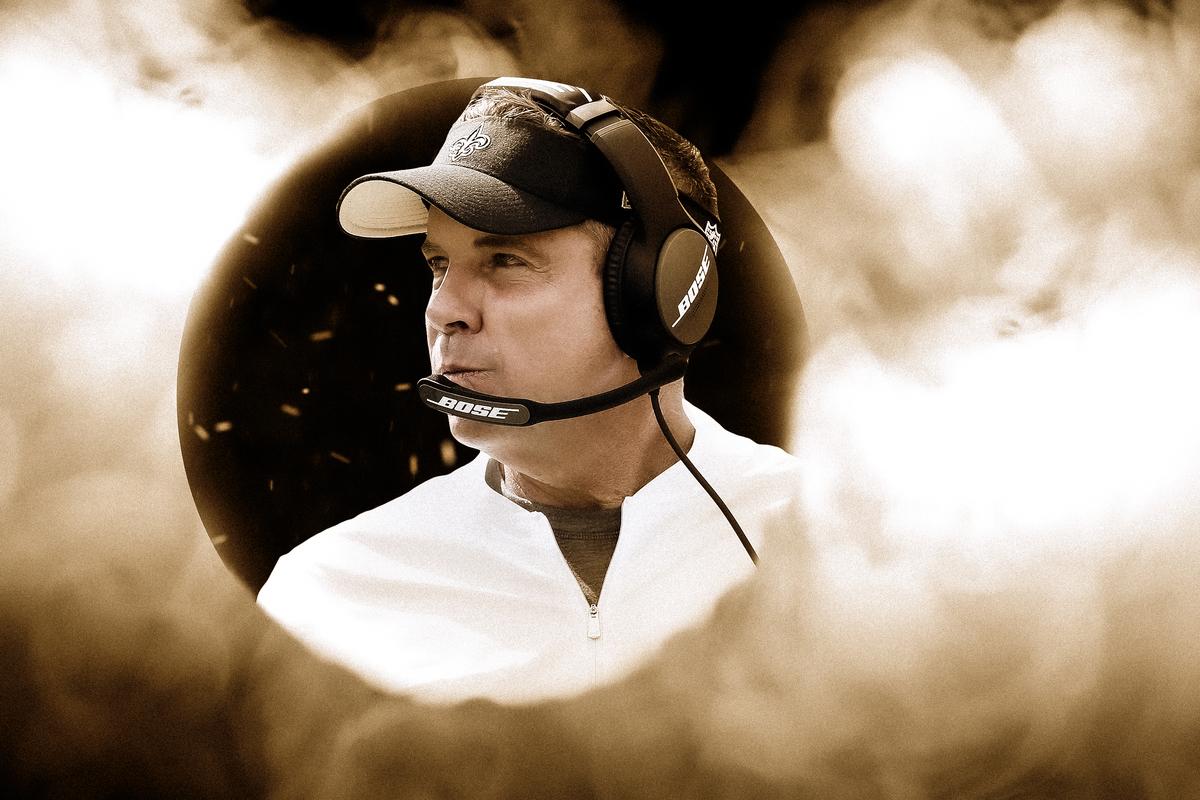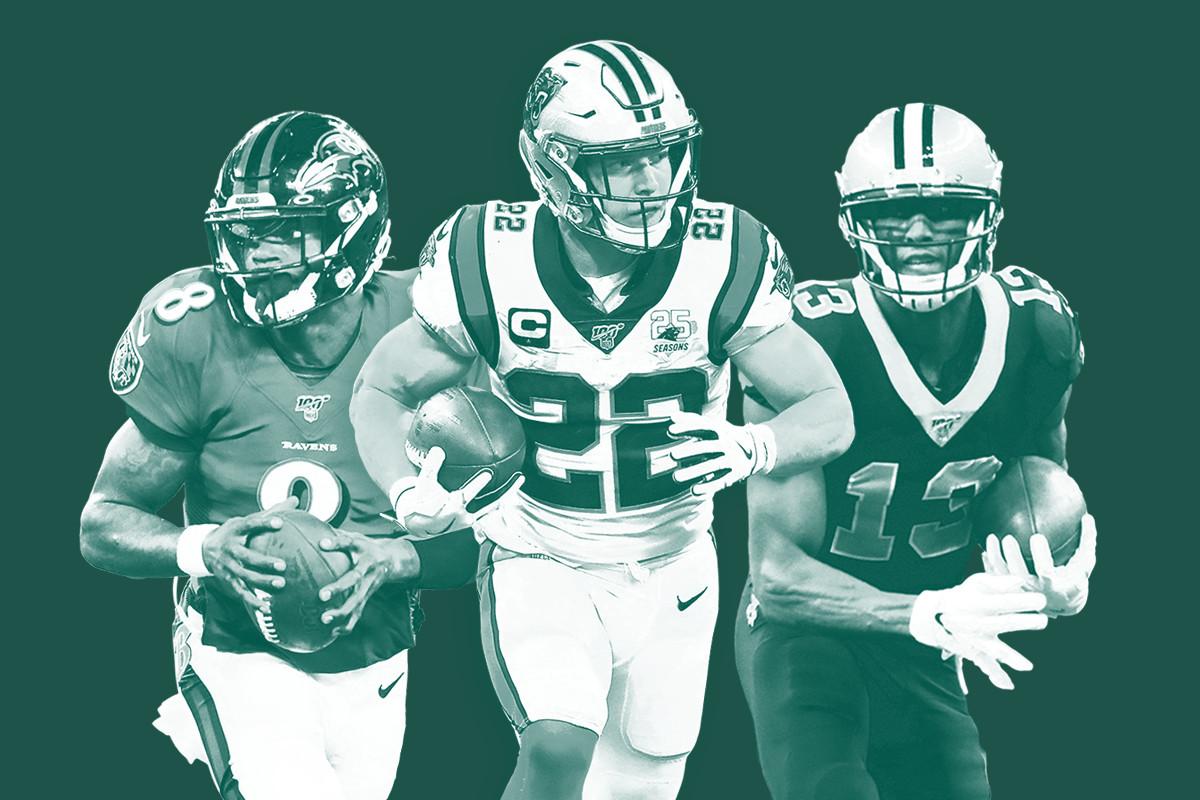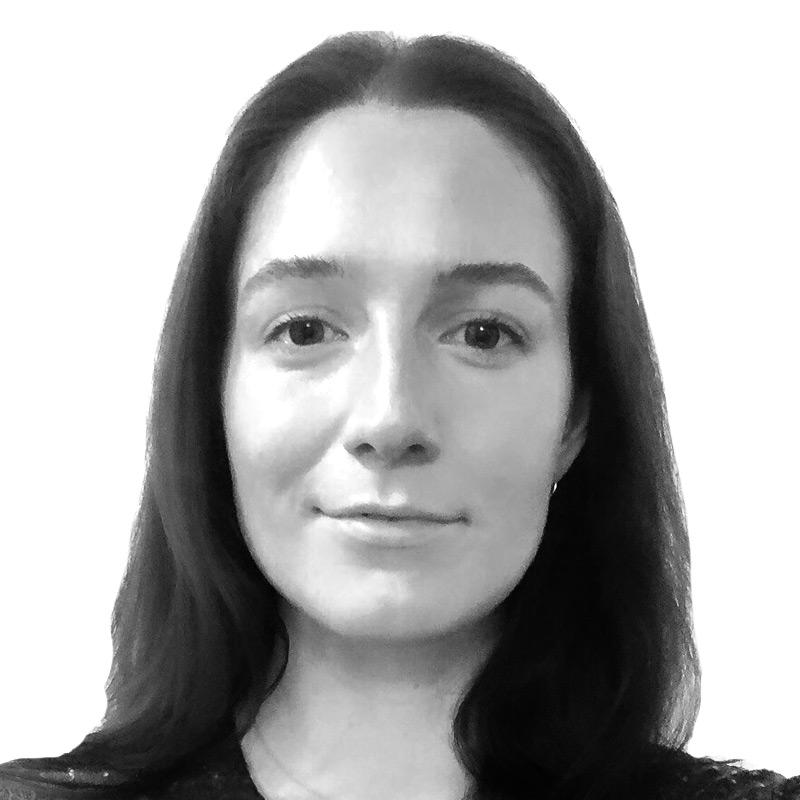
Back in April, as NFL teams were scrambling to figure out how to proceed with offseason activities amid the COVID-19 pandemic, Saints coach Sean Payton manufactured a bit of clarity for his players. Facilities were closed, but the league held out hope that an altered offseason schedule of OTAs and minicamps could begin eventually. Payton didn’t love the sound of eventually, so he gave players the only answer he could that didn’t require any contingencies—he told them to go home and stay there.
“Show up in July for training camp in the best shape of your life,” Payton reportedly told the team. “Take care of your families, your health, and be ready this summer.”
Payton’s decision canceled the team’s offseason workouts, making the Saints the first to do so before the league offered direction. New Orleans’s offseason plans didn’t end up differing dramatically from other teams’—the league officially canceled in-person minicamps in June—but Saints players say by simply making a choice and sticking by it, Payton gave them a subtle yet significant benefit as they prepared for this pandemic-inflected season with so many variables and unknowns.
“I definitely felt like it was an advantage, just having clarity,” said left tackle Terron Armstead.
Armstead spent most of the past six months at his offseason home in Killeen, Texas, where he had access to a friend’s gym and did pilates over Zoom two or three times each week. He doesn’t think every teammate’s setup was as good as his, but he does think he’s in as good shape as, or better shape than, he would be at this point in a normal season. As an eight-year veteran, he’s familiar with the playbook, so he didn’t miss the meeting time over the offseason. It was mostly helpful to know he wouldn’t be called back to New Orleans suddenly for a minicamp session, and that he had the autonomy to plan his training schedule and work on personal projects until late July. He started learning Spanish, he said, but “gave up on it after like two weeks.”
Wherever they were living, Saints players set their own schedules to fit their needs. Quarterback Drew Brees lives in California, where he and throwing coach Tom House (who is, luckily, Brees’s neighbor) made a training plan designed to improve Brees’s arm strength so that he could throw a ball 60 yards. Running back Latavius Murray was at home in Orlando and flew his New York–based trainer down to stay and work with him. Given the need to avoid back-and-forth travel, Murray was probably able to make that arrangement only because he knew he’d be free until July.
Murray likened the Saints’ offseason planning to what some big businesses did early this spring as parts of the U.S. were beginning to shut down. Major tech companies like Microsoft, Apple, Twitter, and Google were among the first to tell employees to work from home and gave some of the longest timelines for a return to in-office work. It’s easier for those companies to have their employees work remotely, obviously. Still, Murray recognized a parallel between the tech companies’ and Saints’ plans: Provide as much clarity as possible on the conditions in which people will be working and they’ll be better-suited to do their jobs and adapt to changing circumstances.
“Maybe it’s a stretch, but you have to be innovative and you have to get out in front of certain things,” Murray said. “That’s what good businesses do and I guess you could say that’s what good teams do.
“I think in this case, it was a great decision because we were the first team to sit there and say, ‘Look, it’s canceled.’ Knowing where this thing was headed, that put our focus maybe ahead of some others’.”
At the time, the Saints did not know more about what the future held than any other team. It’s possible that Payton, who was diagnosed with COVID-19 in March and said he experienced a few days of mild symptoms, drew from his personal experience and took the situation particularly seriously—and sooner—than most. His choice to cancel offseason activities ended up looking good in hindsight since no one wound up having OTAs or minicamps, but Payton said he’d have stuck with that decision even if the league opened facilities before training camp.
“I didn’t want them thinking, ‘Oh, next month, honey, the facility may be back open and then we’re gonna be going into minicamp,’” Payton told Sports Illustrated in May. “Because, honestly, at that time, and even still today, no one really knows if that can happen. We think we’re gonna have a training camp, but no one knows anything about the offseason, relative to OTAs or minicamp. So I wanted them to focus on two things: Handle your family and their well-being and begin to get yourself in fantastic shape.
“Don’t worry about the X’s and O’s right now. You’ll have plenty of time for those. So our players are lifting at home and getting credit for it. But we’re not gonna spend all afternoon on Webex meetings with Drew Brees and Michael Thomas and Marshon Lattimore. We’re just not gonna do that. … And even if the skies parted and the league said, Hey, guess what? In the month of July, we’re allowing this. Well, we’re not gonna be interested in doing that. We’ll be ready when training camp starts.”
It wasn’t a complete four-month log-off. Rookies and new players met with coaches remotely to learn the playbook and veterans were free to pop into those sessions if they felt they needed a refresher. Occasionally, everyone would get together for a team meeting on Zoom, usually featuring a celebrity guest speaker like Shaquille O’Neal, Spike Lee, or Snoop Dogg.
There was one particularly important team-wide meeting in June. It came after Brees said in an interview that he would “never agree with anybody disrespecting the flag of the United States of America,” in response to a question about players kneeling in protest during the national anthem. The comment prompted a largely negative reaction around the league, which included public rebukes from multiple Saints players.
Payton convened a team meeting on Zoom to address Brees’s comments. He made a statement, opened the floor to any player who wanted to speak, and then concluded by reminding the team that he was always available to talk about non-football matters, Murray said. Players were outspoken in the meeting, but it stayed cordial.
“There was no sense of urgency of us falling apart, us turning on each other,” Murray said.
The Saints roster is full of veterans, many of whom have played together for a long time. They’re a good test case for the idea that experienced teams will be better equipped to succeed in this strange year.
New Orleans was the eighth-oldest team in the NFL by Football Outsiders’ snap-weighted age metric last season. Though some veterans like Murray and wide receiver Emmanuel Sanders were brought on as veteran free agents, the core of the team is made up of its own draft picks going back to defensive end Cameron Jordan, Armstead, defensive tackle Sheldon Rankins, wide receiver Michael Thomas, defensive tackle David Onyemata, cornerback Marshon Lattimore, offensive tackle Ryan Ramczyk, running back Alvin Kamara, and defensive end Marcus Davenport. Brees has been with the Saints since 2006. Payton himself is the longest-tenured NFL coach outside of Bill Belichick and one of five head coaches in the league who held the same job they do now during the 2011 lockout year.
That core already knows the playbook, and Payton could trust they’d stay in shape on their own. Armstead figured the hands-off approach might not have worked as well for a different team, but thought it made sense for New Orleans.
“I think it had a lot to do with the team, the makeup of the team,” Armstead said. “I don’t think he would have done as such if we had a new quarterback and a new system.”
Still, it’s rare for an NFL head coach—they of the bedtime curfew checks and “if you’re not early you’re late” scheduling tendencies—to favor player autonomy over their own control. That’s why it was worth examining why the Saints did what they did with the offseason and why Payton thought it was beneficial to loosen his grip. Both Armstead and Murray, unsurprisingly, were big fans of an offseason plan that allowed them to stay in one place and set their own schedules.
Typically, many training camps are held away from teams’ home facilities, and players are housed in hotels or dorms. But an NFL-NFLPA agreement made this summer forbids teams from requiring players to stay in hotels this year for camps. The agreement does, however, require teams to make housing available for players who don’t want to commute from their homes. New Orleans made several floors of a local hotel available for players and so far, most of the team and staff have chosen to stay there; other teams like the Cowboys have followed suit. Payton’s logic was that, even if half the team opted into sequestering themselves in the hotel, it could improve their chances of getting to Week 1 with a healthy roster. Maybe it will help a lot, maybe a little, maybe not at all, but what’s clear is that in a year when there are few perfect answers, any answer for players about where they should be and when is better than none.
“If you just look at the uncertainty that was going around, and that was just in everyday life, let alone in football or sports, it’s definitely made things a lot easier,” Murray said.
If there is a lesson in the Saints’ offseason, it’s about handling an uncertain environment by creating clarity where you can. There’s no lasting lessons for the rest of the league on the wisdom of canceling OTAs early or not forcing veterans into meetings. Everyone hopes there will never be another year like this to apply those lessons to, plus, as Armstead said, extra meetings probably weren’t going to help or hurt much either way. This year’s Saints team may measure the value of its own specific choices, but it will also measure the value of making a clear choice in the first place.


